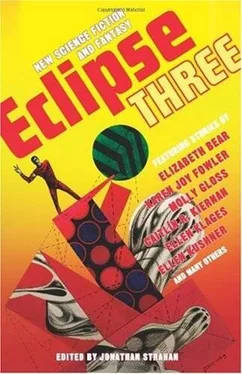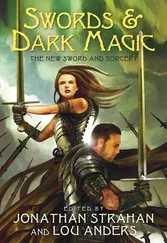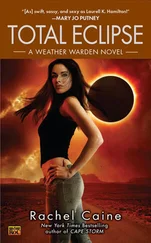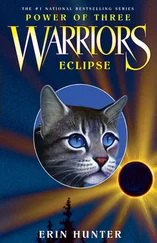Marie-Lucien, who was startled out of words, managed only, "I cannot… " and the painter, who had already begun to descend the stairs, replied cheerfully without turning, "Oh my dear, none of us can."
Marie-Lucien put the cat on the floor of the landing and shut the door, but her continuous piteous crying was difficult to listen to. He finally opened the door again, but only to put out scraps of a lunch he had not eaten, which she ate and then immediately vomited. He was forced to boil up some oatmeal and feed it to her slowly until her starving stomach became calm. And of course by the time she began to put on weight from being fed little tidbits of fish and sips of cream, she had made herself at home in his apartment.
The arrival of the cat did little to change Marie-Lucien's habits. He continued to sleep in his clothes and to spend his days playing solitary card games. But now that his attention had been drawn to it, he frequently heard the voice of the painter rising up from the apartment below him, particularly at night, muttering to himself or perhaps speaking to his paintings; sometimes declaiming lines of poetry; sometimes singing badly or playing a few fragile notes on a violin, the refrains of humorous and nostalgic songs Marie-Lucien remembered from his own childhood and from the nursery days of his son. When the painter thumped heavily against the walls or the floor and woke him in the night, he complained aloud to the cat: "Do you hear him? The damn painter? He is stumbling drunk again." Presumably these sounds had been coming up through the floor during the entire year the painter had lived in the apartment below, and Marie-Lucien had simply been oblivious of them until now-preoccupied with watching over the illness and death of his son, and then his wife.
In June, after a string of unreasonably cold and rainy days, there was again a banging on the door and the painter held out a squat black dog whose wiry coat was muddy and matted. "Abused and abandoned," he said, with a brief, commiserating smile.
"I cannot," Marie-Lucien said, and shut the door.
The painter began beating on the jamb, calling and repeating "M. Pichon, M. Pichon."
Finally Marie-Lucien opened the door again. "I am not M. Pichon," he said unhappily. "Please go and find this man Pichon, give him the dog and leave me alone."
The painter shook his head, still smiling. "Ha ha, I am famous, among other things, for getting wrong the names even of my friends." He bowed slightly. "M. Guyard, I apologize." This was not Marie-Lucien's name any more than Pichon, but it seemed pointless to say so. "He likes tomatoes," the painter said, "and chicken," and for a confused moment Marie-Lucien thought he was speaking of Pichon, or Guyard; but then the painter placed the dog in his arms and turned for the stairs.
Hurriedly Marie-Lucien started after him, holding out the animal, which smelled of mud and oak leaves and the sewer. "This is impossible!" he protested. "M. Rousseau, take him back." He intended to sound strict and authoritative but he had been speechless for so long that his voice came out hoarse and thin; and even to his own ears, his urgent insistence that he could not keep the dog seemed as querulous as an old woman's whining. He was forced to trail the painter down the stairs, calling out ridiculously that he could not afford chicken even for himself, and as he followed the painter right into his apartment, repeating again his refusal to keep the dog, he was startled to find himself suddenly in a jungle-huge umbels, fans, rockets, cascades of intense greens, spangled with the enormous cups and corollas of unimaginably bright magenta and yellow flowers.
"Oh!" he said, and staggered back.
They were paintings, of course, many of them quite large paintings, standing along all the walls of the rooms, and Marie-Lucien blushed and straightened up when he realized it. In fact, they were not even very good paintings, having no more than a child's sense of perspective, and drawn entirely without shadow or relief. The tiger, which had seemed so ready to spring at Marie-Lucien from among the leaves, he now saw was flat and simple and unconvincing as a picture postcard. He frowned, and said the first thing that came into his mouth, which was, "The flowers are too large, I have never seen flowers in life this large."
"Haven't you?" the painter said, and gazed about at his own work, entirely unpersuaded.
Many of these jungle scenes were of death and dismemberment-jaguars and tigers and lions variously attacking Negroes, a white horse, a hunch-shouldered Indian buffalo. Yet there was something oddly innocent in all the expressions, as if the creatures were only playing at a game, and in a moment would scramble to their feet, laughing, their wounds nothing more than circus greasepaint. Now that Marie-Lucien had regained his composure, the feeling this summoned in him was odd as well: odd, that paintings of such violence and bloodshed conjured for him an ingenuous child's world, a world in which the lion lies down with the lamb.
After several moments the little black dog in his arms squirmed to be released, and woke him from the brief dream state he must have slipped into.
"M. Rousseau, I cannot keep this dog," he said hoarsely, unequivocally, and let the dog down onto the floor. The little thing immediately ran out the door and up the stairs, where his claws could be heard scrabbling across the floor of Marie-Lucien's apartment. This was followed shortly by the cat's yowl and then the dog's tortured yelp.
The painter laughed: "A dog is the emblem of fidelity," he said, as if pronouncing from a pulpit. Then he began rustling through cupboards, apparently in search of glasses or a bottle, for he said brightly, "We should first have a glass of wine," though he did not say what he meant by "first."
"I must… " Marie-Lucien tried to say, but Rousseau waved a hand and said, "All the more reason not to." He poured a few drops of vin blanc, the last from a dusty green bottle, into two paint-smeared cups and held out one of the cups to Marie-Lucien. "Santé!" he said, and downed the bit of wine in a single swallow. Marie-Lucien, because he could not readily think of a reason not to, drank his also. The wine was vinegary and tasted of the dust of the bottle; or perhaps there had been dust in the cups.
The painter then clapped him on the shoulder and began steering him from painting to painting in the two rooms of the apartment, declaiming before each one as if he were a docent in a museum. Not all of his work was of the jungle. There were a few commissioned portraits of children whose parents, Rousseau cheerfully admitted, had refused payment on grounds the painting did not resemble their child. Two were small portraits of the artist, painted not from mirrors but from "the image of my handsome self I carry in my own mind, ha ha!" One was a very strange painting of a man resembling Rousseau standing over an infant apparently abandoned beside a country road, though neither the child nor the man appeared the least frightened or disturbed by their circumstances. There were, as well, scenes from the Parisian countryside and the suburbs, and of Laval, where the artist had spent his childhood. In them, cows grazed in stiff profile, completely without perspective; roads ran between hedges and fences without any sense at all of a third dimension. It was evident to Marie-Lucien that Rousseau was a second-rate amateur; but at the same time he felt himself helplessly drawn into the world of the paintings, a world beyond everyday life, beyond time, a strange and dreamlike world in which childhood's careless days had deepened without abandoning their purity.
"The colors… " he said at one point, without any notion of how to finish the thought.
"Yes, yes. But it's my blacks that Gauguin admires: the perfection of my blacks."
Читать дальше











